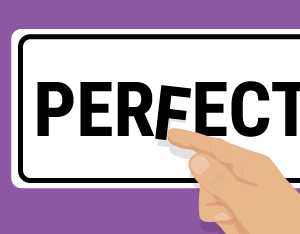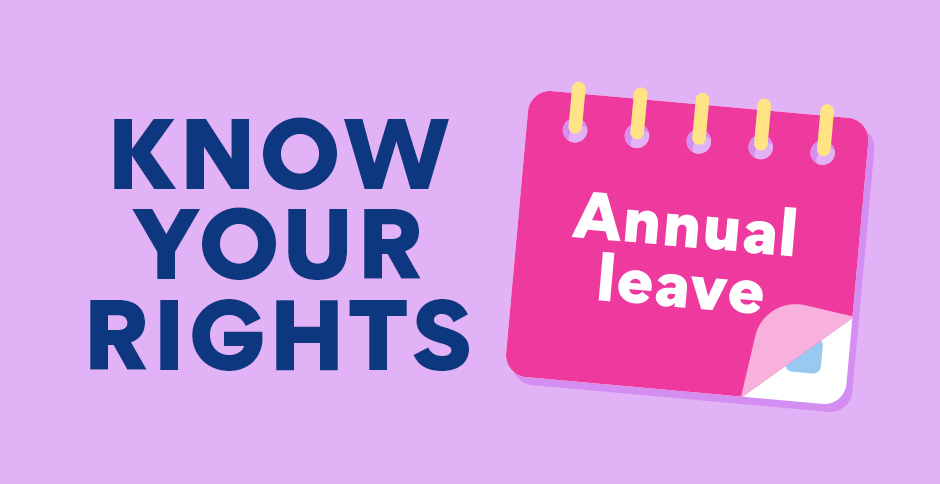Do you spend hours reworking a presentation? Fiddle around with the font? Hesitate to reveal an early draft of a report because it’s not presentation-ready? You could be suffering from perfectionism.
Lynne Cazaly is a facilitator and author of ish: The Problem with Our Pursuit of Perfection and the Life-Changing Practice of Good Enough. She warns our desire to make things look, feel or seem perfect is dangerously on the rise—and it’s impacting our health and happiness.
“People are overthinking and overworking,” Cazaly says. “We tend to have an endless pursuit for information, and are not satisfied with the answers we’ve already got or the progress we’ve already made.” She says unless you’re a surgeon, most of the time near enough is good enough.
The dangers
We’re our own harshest critics and not particularly good judges of the quality of our own work, Cazaly says. In the quest for perfection, we’re pushing ourselves to work long hours, skip lunch breaks and redo tasks over and over to make things bigger or better—but often the result isn’t worth the extra effort.
It’s the law of diminishing returns: at some point you start to waste your effort because the hours you’re putting in are no longer delivering anything that different to what you’ve already achieved.
You’re not just neglecting time spent on other work, you’re also neglecting yourself. Cazaly’s research found a strong correlation between people who continually seek perfection, and issues including anxiety, depression, sleeplessness, low self-esteem, migraines and asthma.
“We set ourselves this elusive standard,” Cazaly says.
Many of us get caught up in what’s known as The Spotlight Effect, Cazaly says—we tend to overestimate how much others are noticing us. “No one is looking at us as much as we think they are,” she explains. “They are all concerned with their own work, so the critics are never going to be as harsh as you are.”
The signs
Growing up in a perfectionist household can make you more prone to your own perfectionism tendencies, Cazaly says. Sometimes it stems from a way of gaining control or acceptance, of proving someone wrong, or from a desire to be admired or loved.
Do you hear yourself constantly criticising your own work or show reluctance when someone wants to see what you’ve done before you’ve finished? “There can be this fear of rejection so we keep working and working to make it better,” Cazaly says, “when really we’d be better off showing it earlier and getting course correction that is smaller, rather than get a big course correction later and be shattered when it’s totally wrong.”
Cazaly says there are three types of perfectionist—those who have high standards for themselves, those who believe society has high standards that have to be met, and those who have high standards for others.
Her message isn’t that high standards aren’t important, it’s about choosing the things that are and letting go the things that aren’t—like what’s for dinner, how clean the house is or whether a document really needs proofreading again.
People are scared of making mistakes, but often other people won’t notice and if they do, it’s not usually a big deal, Cazaly says. “It happens all the time—people put stuff out, there are mistakes, they correct it, that’s human nature.”
The cure
Accepting that we’re all imperfect can help swing the pendulum towards a more balanced, contented life.
It also helps to remind yourself of what you’re missing out on. You may think all this hard work and striving for the very best will advance your career. But are all those extra hours sweating over one report going to do as much for your career as if you’d used that time to acquire a new skill or go to a network event? Probably not.
Finally, put your early work out there, get feedback and get clarity on the standard that’s expected of you. Is it 3 pages or 30? Six dot points or a dozen? When your boss says it needs to be better, ask them to more specifically define what standard you should aim for.
“It can be a life-changing practice to learn to just go for good enough,” Cazaly says. “Good enough is often great for the situation. Lots of things we do, we automatically call ‘near enough and good enough’ on. I’m saying you can do it more intentionally and it will usually not matter much. People won’t notice, you’ll be less stressed and you’ll probably end up with a better result.”



